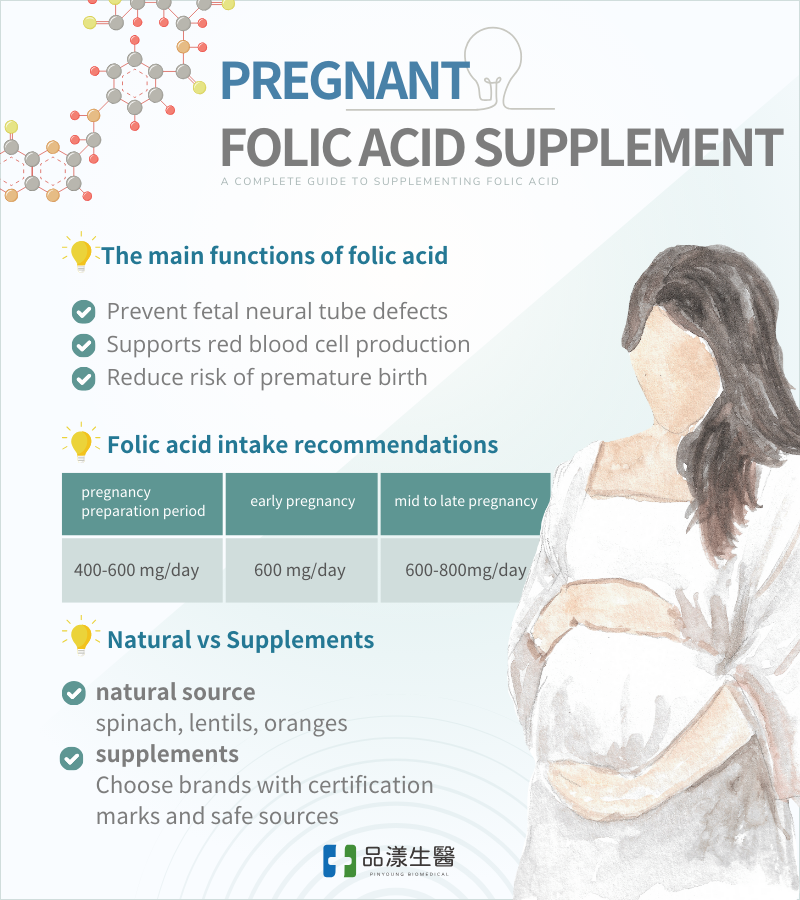Folic Acid is an indispensable nutrient for the human body, especially during pregnancy, and is a key element for the healthy development of the fetus. This article will deeply explore the role of folic acid, intake recommendations during pregnancy, and present the sources of folic acid in daily diet through a comparison table to help expectant mothers easily supplement.
What is folic acid?
Folic acid is a water-soluble vitamin that belongs to B9 in the vitamin B complex. It is involved in the synthesis and repair of DNA and is essential for cell division and the formation of red blood cells. During pregnancy, folic acid is even more effective in reducing the risk of neural tube defects in the fetus, such as spina bifida and anencephaly.
The main functions of folic acid:
| effect | Detailed description |
|---|---|
| Promote cell division and growth | Particularly important for rapidly growing tissues such as the fetus. |
| Prevent anemia | Assist the production of red blood cells and reduce the occurrence of megaloblastic anemia. |
| Reduce risk of birth defects | Reduces the chance of fetal neural tube defects and other congenital defects. |
| Support cardiovascular health | Helps metabolize homocysteine, reducing the risk of cardiovascular disease. |

How should you take folic acid during pregnancy?
Folic acid requirements increase significantly during pregnancy. It is recommended that expectant mothers follow the following intake recommendations during pregnancy preparation and pregnancy:
Recommended intake of folic acid:
| stage | Recommended daily intake | Additional supplementary requirements |
|---|---|---|
| average adult | 400 micrograms | No special supplement required |
| Preparing for pregnancy | 400-600 micrograms | Start taking folic acid supplements |
| 3 months before pregnancy | 600 micrograms | Additional supplements must be taken as recommended by your doctor |
| mid to late pregnancy | 600-800 micrograms | Continuously supplement to avoid insufficient intake |
| Lactation | 500 micrograms | Maintain a balanced diet and folic acid supplements |
Natural sources and supplements of folic acid
Folic acid content in natural foods:
| food type | example | Amount of folic acid per 100g |
|---|---|---|
| green vegetables | Spinach, cauliflower, asparagus | 100-200 micrograms |
| beans | Lentils, chickpeas, black beans | 100-300 micrograms |
| Nuts and Seeds | sunflower seeds, almonds | 50-70 micrograms |
| fruit | Oranges, bananas, strawberries | 30-50 micrograms |
| processed food | Fortified cereals, breads | 40-150 mcg per serving |
hint: Folic acid in natural foods is easily destroyed by high temperatures. It is recommended to choose low-temperature cooking to retain nutrients.
Risks of folate deficiency during pregnancy
Folic acid deficiency may lead to fetal neural tube defects, premature birth, or low birth weight. In addition, pregnant women themselves may also suffer from anemia, reduced immunity and other problems due to insufficient folic acid. Therefore, adequate folic acid intake is the cornerstone of a healthy pregnancy.
How to choose the right folic acid supplement?
- Dosage confirmation: Choose products that meet the dosage recommended by your doctor.
- Source safe: Make sure the supplements you buy are from trusted brands and have government certification.
- Contains other nutrients: Some supplements are combined with vitamin B12 or iron to help comprehensively improve pregnancy health.
Folic acid supplements vs natural intake
| Way | advantage | shortcoming |
|---|---|---|
| Natural intake | Comprehensive nutrition and dietary fiber | The intake is difficult to accurately control and is easily lost when cooked at high temperatures. |
| folic acid supplements | Precise and convenient dosage, suitable for busy modern lifers | Excessive supplementation may cause adverse reactions and should be used with caution. |
Conclusion
Folic acid is an important key to the healthy development of every expectant mother and fetus, and professional advice should be followed, whether in daily diet or as an additional supplement. By taking folic acid correctly, you can not only protect your own health, but also lay a solid foundation for your baby's future.



